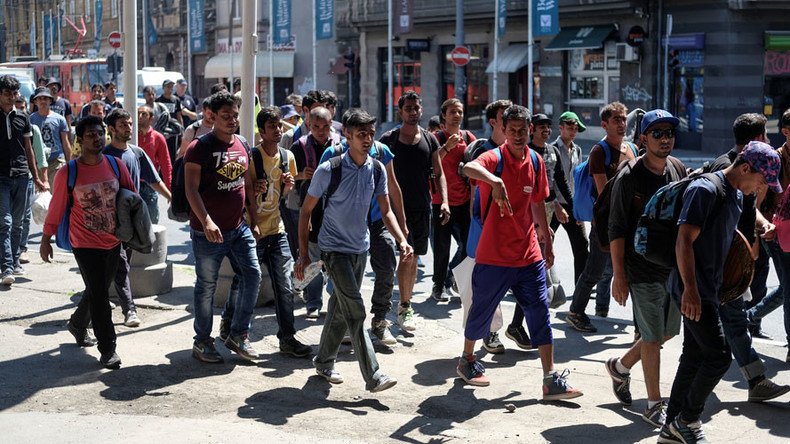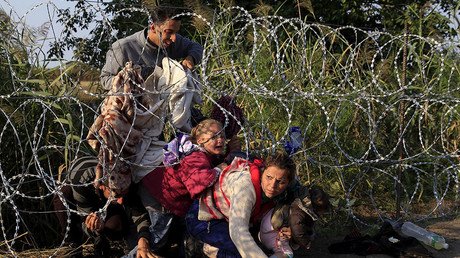‘Not medicine, but poison’: Hungarian PM says his country does not need ‘a single migrant’

Right-wing Hungarian leader Victor Orban said refugees are less than welcome in Hungary, calling them “a poison” and “terror risk” at a joint press conference with his Austrian counterpart. He also rejected the migration policy the EU is trying to impose.
READ MORE: EU reduced to weak regional player unable to defend itself – Hungary’s Orban
Orban, who is known as a harsh critic of the mandatory migrant quota scheme that the EU proposed in February, argued that there is no reason for Hungary to take in any migrants, as its economy and demography would be better off without them.
“Hungary does not need a single migrant for the economy to work, or the population to sustain itself, or for the country to have a future,” he said, stressing, that, on the contrary, “every single migrant poses a public security and terror risk.”
“This is why there is no need for a common European migration policy,” he said, insisting that the right to decide migration issues should be reserved exclusively for national governments. Orban went on to say that “whoever needs migrants can take them, but don’t force them on us, we don’t need them.”
As far as Hungary is concerned, “migration is not a solution but a problem... not medicine but a poison, we don’t need it and won’t swallow it,” he argued.
Earlier this month, the Hungarian PM called a referendum on the mandatory quota system, which is to be held on October 2. Arguing that, if enacted, the reform would challenge Hungary’s sovereignty in internal matters, Orban has urged Hungarians to reject the EU’s proposal.
“We believe that only Hungarians, not Brussels, can decide who we want to live with in Hungary,” he said when announcing the date for the vote.
Hungary and three other central European states that constitute the Visegrad Four group, which includes Czech Republic, Slovakia and Poland, have been opposing the mandatory quotas the EU wants to impose on each member state.
In December of last year, Hungary filed a lawsuit with the European Court of Justice to thwart the EU’s attempt to redistribute incoming arrivals across the European Union, of which some 2,300 would be resettled in Hungary, if the EU gets its way.
In a recent interview with RT, Orban also expressed his distaste for Europe’s current political leadership, blaming it for being unable to tackle the refugee crisis or terrorist threats.
READ MORE: Over half of Europeans link terrorism to refugee influx – PEW survey
“Europe… is a regional player, who can’t protect its borders and citizens as well as keep the people together,” he said, accusing Europe’s political elite of “failing the test” and lambasting it for not reaching “any single of its goals.”
The recent spate of terrorist attacks in Germany illustrate that even one of the block’s driving forces, which is often regarded as its “fulcrum,” is just as vulnerable as the rest of the countries in the EU, according to Orban.
“And this means that even in that country there’s no absolute guarantee [of security] anymore.”
READ MORE: Refugee rapes 79yo woman at German cemetery
Orban directly links the growing number of terrorist attacks on European soil to the unresolved migration crisis.
“It is clear as two and two makes four; it is plain as day. There is an obvious connection,” he said last week following a meeting of the Visegrad Four group in Warsaw.
“If somebody denies this connection then, in fact, this person harms the safety of European citizens,” Orban stressed.












